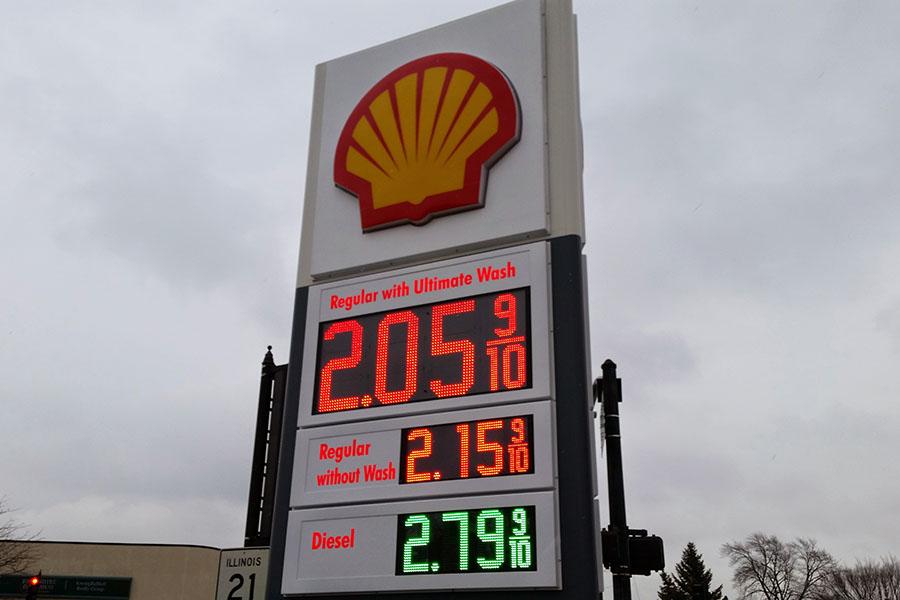The Price Is Not Right
Analyzing the impacts of lowering gas prices on the United States and the World.
February 6, 2015
Over the past six years, the ebb and flow of gas prices has had a general trend of increased prices, reaching a climax at a U.S. average of $4 per gallon in May of 2011, according to GasBuddy.com. Yet, over the past few months, the price of gas has steadily fallen due to several factors, landing at a U.S. average of about $2 per gallon. In the Chicago area specifically, prices that have been as high as $4.50 per gallon are now dipping down as low as $2.15 per gallon.

Mr. Dennis Duffy, a social studies teacher at Libertyville High School, explained, saying, “Now the big reason why gas prices drop is because of the fracking revolution over the past year or so. Fracking is the hydraulic fracturing of shale. Basically, the shale is sedimentary rock, and you blow apart the layers of rock. What they’re doing is extracting oil that is trapped between the sedimentary layers. The point is that by extracting that oil, America has essentially become energy independent. It’s been dependent [in past years] on foreign sources of oil, thus we were at the mercy of OPEC’s pricing structure.”
While the fracking revolution has had a huge effect on the price of gasoline, prices have also been greatly affected by the increased supply of oil being introduced to the global marketplace by Saudi Arabia. According to The Economist, with this greater supply driving prices down, many economies around the world, particularly those of Russia, Iran, and the United States, are being hurt by the lower prices.
According to MarketWatch.com, lower gas prices do not provide an economically beneficial marketplace for further expansion of the gas industry. With lower prices, many companies are cancelling or delaying projects for furthering the gasoline industry in the future because they are not profitable.
Mr. Brian Voss, an economics teacher at Libertyville High School, explained, “Fracking has a very high break even point. Those companies need a very high [price per barrel] to sell their fuel at to actually operate their business.”
According to The Deseret News National, an online news publication, the lowering gas prices have had and will continue to have an effect on the manufacturing industry of the United States. Lower prices could begin to cut off parts of the economy that enable the oil drilling, thus causing an even greater influence on reduction of industrial activity.

On the other hand, the decrease in the price of gasoline has had major impacts on individual families.
“Let’s say you had a fifteen-gallon tank in your car, and gas is at four dollars per gallon. It only takes a little simple math to figure [out] that it takes sixty dollars to fill your tank. Well, if gas is at [about] two dollars, like it is right now…it costs you thirty bucks to fill up your car. Well that means thirty dollars to spend somewhere else, and that’s absolutely huge when you multiply that by three cars and a family income,” Duffy affirmed.
As Mrs. Kelly Angelos, an LST Counselor, said, “Bottom line, lower gas prices mean more cash in my pocket, so I’m more likely to go out to eat or buy something frivolous for my two little boys.”
As gas prices have decreased, a more positive spirit has entered the citizens of the United States regarding the economy.
Mr. Voss explained, saying, “A lot of the economy is self-fulfilling. If you think the economy is going well, and you have a better image of it, we end up doing better.”

